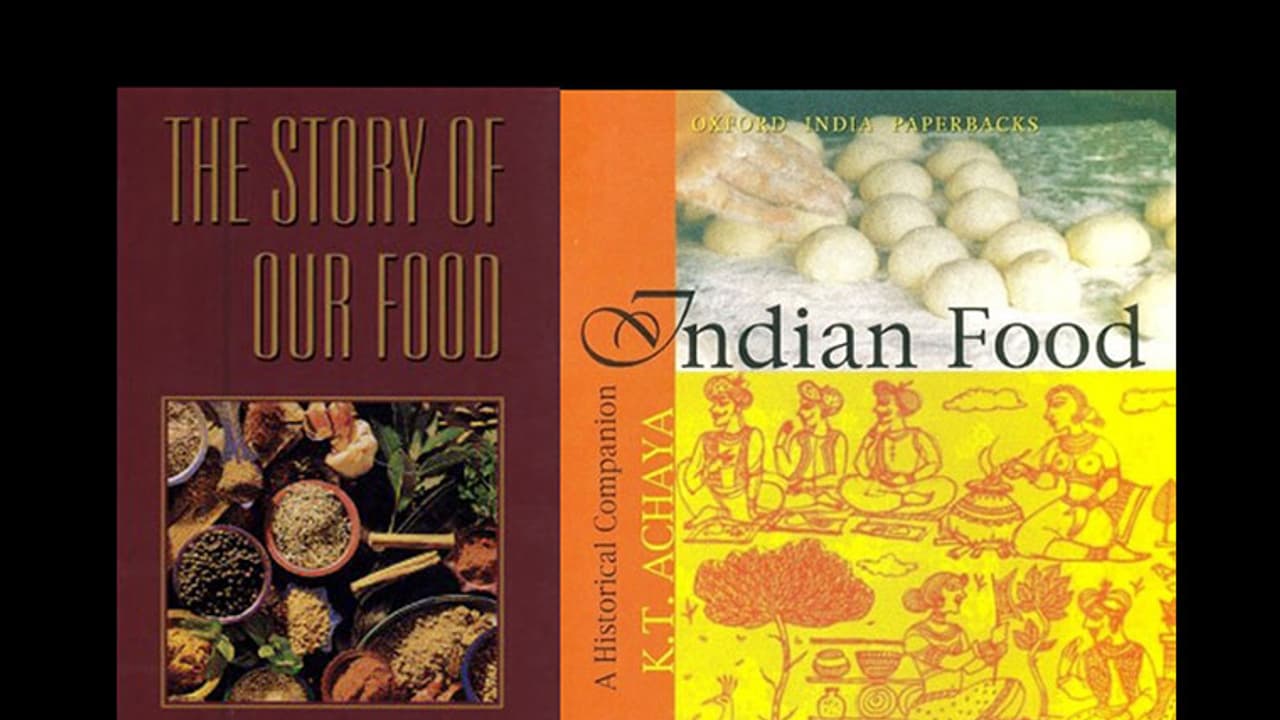Born in Kollegal, Karnataka, in 1923, Achaya was a well-known oil chemist with many patents to his name. He wrote several books on Indian food history that provide authentic information about the origin of spices, fruits and vegetables and their usage in Indian kitchens. His works are considered extremely important by food industry professionals.
What the great Salim Ali is to Indian ornithology, Kollegal Thammu Achaya is to Indian culinary history.

Achaya, an oil chemist by training, became a pioneering encyclopedist of Indian food. In the pre-Internet era, Achaya's many works, most notably, Indian Food and A Historic Dictionary of Indian Food, were the most authentic ready reckoners for those interested in the dietary and culinary traditions of the Indian sub-continent.
Combing through ancient and medieval literature--the Vedas, Upanishads, Sangam poetry to the hagiography of Mughal emperors--Achaya chronicled the origins and evolution of almost every ingredient found, and dish made in the Indian kitchen. Having a copy of his books can help you win heated arguments about say, the provenance of sambhar, pulao (it finds a mention in both Yagnavalka smriti, a 3rd to 5th century AD text, and 3rd century AD Tamil works), or beef-eating in India.
Achaya spent nearly two decades between 1950 and early 1970s researching oilseeds at the government regional research lab in Hyderabad. In the process, managed to get nearly a dozen patents to his name. Later, he served as the executive director of Protein Foods and Nutrition Development Association of India in Mumbai, and as a consultant to the Central Food Technological Research Institute (CFTRI) in Mysore.
He might not have personally trained or taught them, but for most food industry professional, chefs, and food writers, Achaya remains an acharya. Today, September 5, which is celebrated as Teacher's Day, also happens to be Achaya's death anniversary. As tribute, we spoke to some well-known food industry professionals on Achaya's impact on this field.
“The work of food historians such as Achaya is extremely important for those in the food industry. It helps our understanding of how food and culinary traditions evolved. An understanding of history lays the foundations for the fusion and innovation we attempt. For instance, the Chettiars were originally vegetarian. Their encounters with meat happened when trade took them to foreign lands. Today, the Chettinad cuisine we know is dominated by non-veg food. To truly understand Chettinad cuisine, you need to understand its evolution," said Ajit Bangera, senior executive chef, ITC Grand Chola, Chennai.
Rana Gomes, executive chef, Royal Orchid Hotels in Bangalore, rues the fact that not too many people remember Achaya's seminal contribution to Indian food history. “We Indian chefs should celebrate his birthday as ‘Food Science Day’. His work has influenced me to a great extent in understanding the local cuisine of India, using of ingredients and local fresh grown vegetables and fruits.”
At a time when it's become fashionable to go local in terms the sourcing of ingredients, the receding knowledge of what exactly is 'local' results in a half-baked mish-mash. A refresher course in food history can avoid such embarrassments.
"His chronicles have been influential because it helps to determine the origins of where ingredients come from--like kokum to coconut milk to a variety of greens--which helps us professionals get a sense of flavour profiles that are necessary to add the element of authenticity that elevates a dish,” said Suvaranjan Bannerjee, executive chef, The Lalit Group of Hotels.
According to renowned food writer and critic Marryam H Reshii, Achaya was born in an age when food was a commodity to be eaten without much thought. It was certainly nothing that a man ought to be writing about, much less recording in any great detail. "That was what British and American women's magazines were for; recipes for cakes and bakes. The other great food scientist, Harold McGee, was born 30 years after Achaya.”
“So, it was remarkable that a man, that too in India, came to record the history of food and ingredients in a systematic way, researching even cuisines and myths and superstitions about prepared foods. But perhaps the most remarkable fact is how he occupied a slot that was knowledgeable but user-friendly and ageless. Even today, we food writers have a copy of his Indian Food or Historical Dictionary of Indian Food on our shelves, irrespective of what else, if anything else, we have in the way of food literature. It was never pedantic, never preachy, yet 100 % accurate in every respect. And that was before Wikipedia and Google made everything easy,” she adds.
